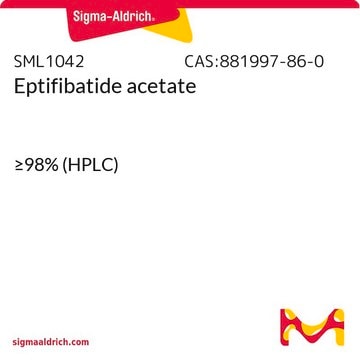12685
Nω-Phospho-L-arginine lithium salt hydrate
≥95.0% (TLC)
Synonym(s):
H-Arg(PO3H2)-OH lithium salt, N5-(Phosphonoamidino)-L-ornithine lithium salt, N5-[Imino(phosphonoamino)methyl]-L-ornithine lithium salt, L-2-Amino-5-(N′-phosphonoguanidino)valeric acid lithium salt, Lithium L-arginine phosphate
About This Item
Recommended Products
assay
≥95.0% (TLC)
form
powder or crystals
color
white to off-white
storage temp.
−20°C
InChI
1S/C6H15N4O5P/c7-4(5(11)12)2-1-3-9-6(8)10-16(13,14)15/h4H,1-3,7H2,(H,11,12)(H5,8,9,10,13,14,15)/t4-/m0/s1
InChI key
CCTIOCVIZPCTGO-BYPYZUCNSA-N
Biochem/physiol Actions
Analysis Note
signalword
Warning
hcodes
Hazard Classifications
Eye Irrit. 2 - Skin Irrit. 2 - STOT SE 3
target_organs
Respiratory system
Storage Class
11 - Combustible Solids
wgk_germany
WGK 3
flash_point_f
Not applicable
flash_point_c
Not applicable
Certificates of Analysis (COA)
Search for Certificates of Analysis (COA) by entering the products Lot/Batch Number. Lot and Batch Numbers can be found on a product’s label following the words ‘Lot’ or ‘Batch’.
Already Own This Product?
Find documentation for the products that you have recently purchased in the Document Library.
Our team of scientists has experience in all areas of research including Life Science, Material Science, Chemical Synthesis, Chromatography, Analytical and many others.
Contact Technical Service







